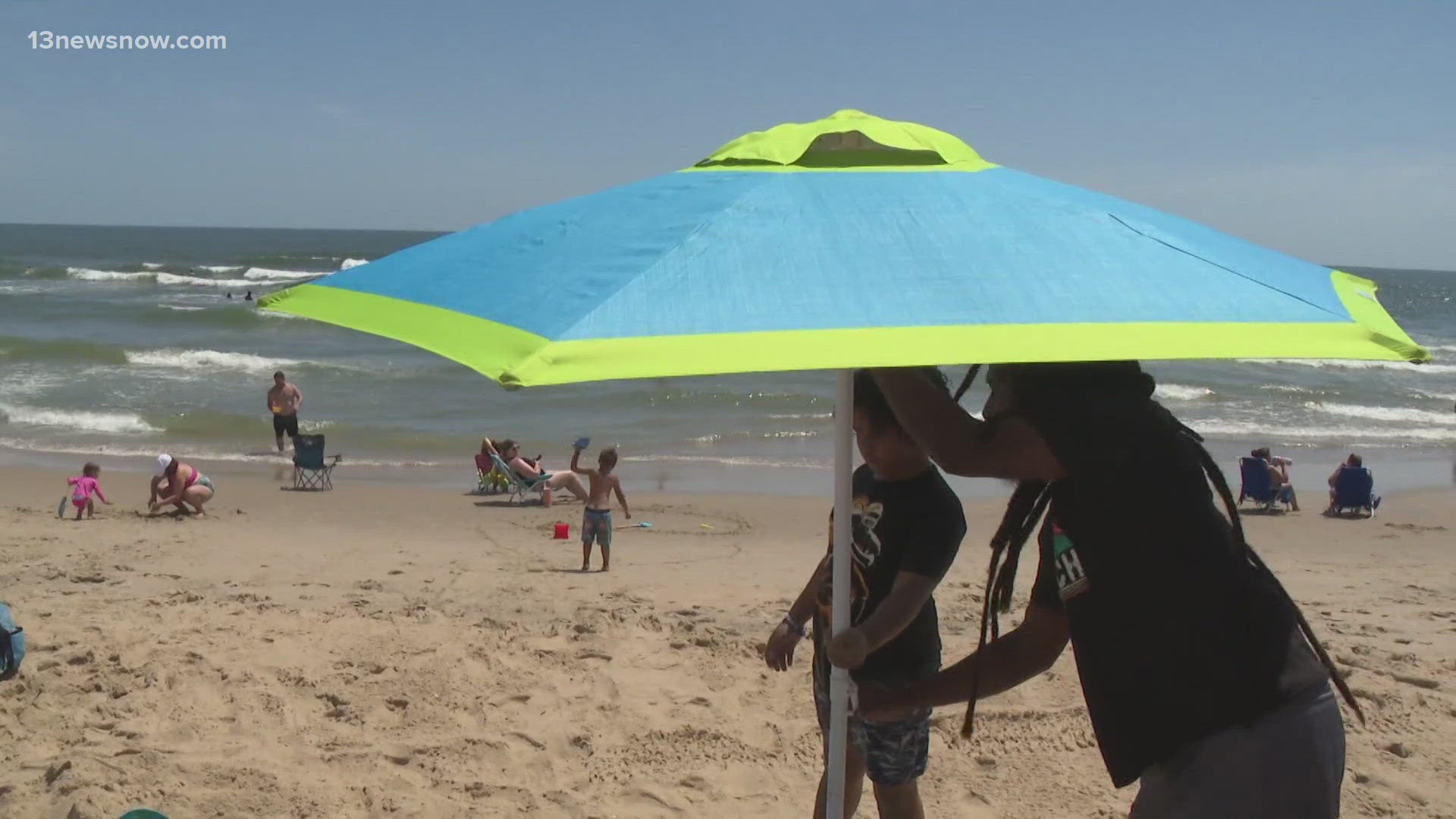VIRGINIA BEACH, Va. — Virginia Beach Emergency Medical Services has started to see an uptick in heat-illness-related responses over the last week.
“Understanding that fine line is the difference between not feeling well and a true life-threatening emergency," Division Chief of Virginia Beach Emergency Medical Services Bruce Nedelka tells 13News Now.
Although hard data on the number of medical responses are not available at this time, Nedelka says there has been a noticeable increase in the medical responses they've been called to since the most recent heat wave, where feels-like temperatures have climbed to triple digits several times.
Many of those responses are heat exhaustion cases.
"As their body temperature rises, their body is telling them they need shade and cool. If they don't, the next step is the life-threatening threshold for heat stroke. That's when the body shuts down. Your skin gets dry and turns red and you can get unconscious," Nedelka said.
Symptoms of Heat Exhaustion:
- Headache
- Dizzy or fainting
- Heavy sweating
- Cold, pale and clammy skin
- Nausea or vomiting
- Fast, weak pulse
- Weakness or muscle cramps
- excessive thirst
What to Do for Heat Exhaustion:
- Hydrate with water or sports drink
- Move to a cooler air-conditioned place
- Lie down
- Take a cool shower or cold compress
- Remove tight fighting clothing
While much of the symptoms are similar for heat stroke, the key difference is that body temperature reaches 104.
What to Do for Heatstroke:
- Call 911
- Move the person to a cooler air-conditioned place
- Use cold compresses to reduce body temperature
- Do not give fluids

